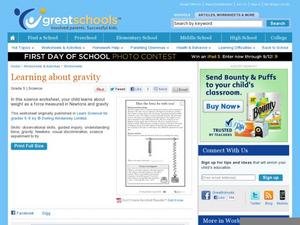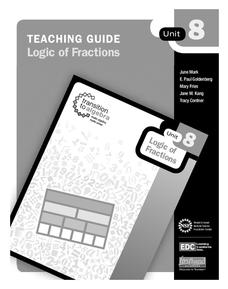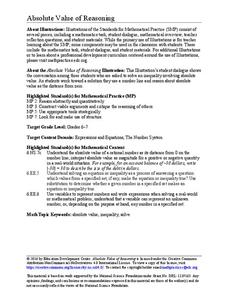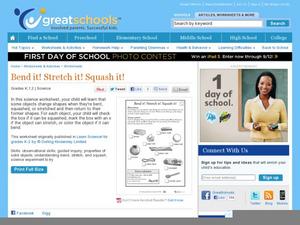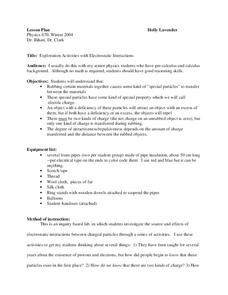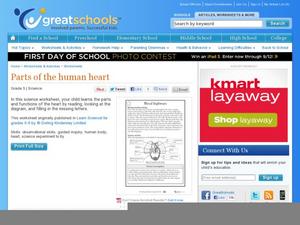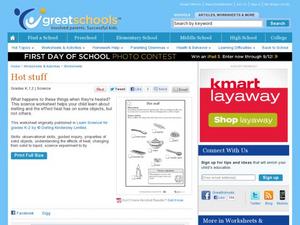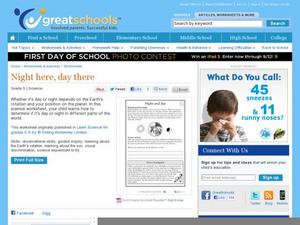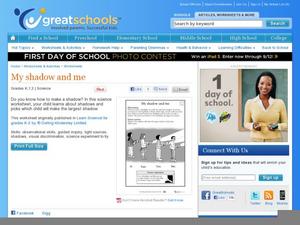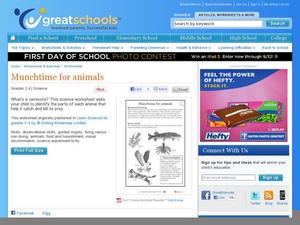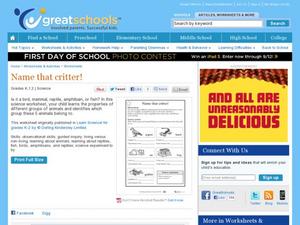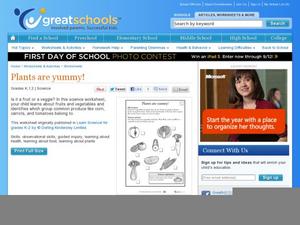Education Development Center
Micro-Geography of the Number Line
Young mathematicians dive into the number line to discover decimals and how the numbers infinitely get smaller in between. They click the zoom button a few times and learn that the number line doesn't just stop at integers. Includes...
Virginia Department of Education
Integers: Addition and Subtraction
Young mathematicians construct their own understanding of integers with an inquiry-based math lesson. Using colored chips to represent positive and negative numbers, children model a series of addition and subtraction problems as...
Curated OER
Learning about gravity
Learn how to measure weight with newtons in a science experiment about gravity. After they read a short paragraph about force, fifth graders draw an arrow to indicate which way a spring is being pulled. Next, they survey their family...
Education Development Center
Logic of Fractions
Before diving into operations with fractions, learners discover the foundation of fractions and how they interact with one another. Exactly as the title says, logic of fractions is the main goal of a resource that shows pupils how...
Achieve
Rabbit Food
Keep your pets slim, trim, and healthy using mathematics! Pupils use a linear programming model to optimize the amount and type of food to provide to a pet rabbit. They model constraints by graphing inequalities and use them to analyze a...
Federal Reserve Bank
Your Credit Report
What is your credit score? How do you find it? Help your pupils answer these questions and more. They will access their free credit report and then analyze its meaning.
Education Development Center
Absolute Value Reasoning
Teach solving absolute value inequalities through inquiry. Groups use their knowledge of absolute value and solving inequalities to find a solution set to an absolute value inequality. Working collaboratively encourages discussion,...
Curated OER
Bend It! Stretch It! Squash It!
Some items keep their shape no matter what happens! Have your kindergarten class choose which items would stay the same if they were bent, stretched, or squashed. The last activity prompts kids to see what happens when they stretch a...
Curated OER
Feel the Vibrations
How does sound travel in a string walkie-talkie? Third graders read about the way vibrations act between two cups and a string. Next, they put the steps in order, and experiment with their own walkie-talkies.
Curated OER
Growing
Growing is part of being a living thing. Kindergartners decide which illustrations represent the life cycle of a living thing, then put a check mark next to the correct pictures. They then examine their own growth on a height chart.
Ohio State University
Exploration Activities with Electrostatic Interactions
Step out of the 21st century and discover protons and electrons through observation. Using common materials, participants continually adjust their explanation of charges. The final assessment requires pupils to design their own...
Curated OER
Blood Highways
Fifth graders read an informative paragraph about how blood travels through our bodies. Then, they fill in the missing letters for words that label things in the circulatory system. An answer key is provided on page two. An interesting,...
Curated OER
Hot Stuff
Very young scientists who are learning about solids, liquids, melting, and freezing will use this worksheet to identify things that would melt if put in a warm place. There are eight objects altogether, and learners place a check mark...
Curated OER
Plants and Animals: Alike and Not Alike
After reading an informative paragraph that outlines some of the differences between plants and animals, fifth graders attempt to correctly categorize 12 words in a word bank. They must put them in the plant, or animal category. This...
Curated OER
Night Here, Day There
Explore astronomy with a lab sheet for fifth grade scientists. After reading a short explanation about the earth's rotation, they solve a word problem about the differences in times across the world. Next, they make a model of the solar...
Curated OER
Plants have needs, too!
Plants can die if they don't get enough sunlight and water. Kindergartners observe a picture of a hanging plant and grass under a tree, and interpret which each plant has died. Next, they grow watercress seeds in wet cotton to compare...
Curated OER
Getting nosy
A nose knows! Connect animals to their noses with a fun science activity. Animals include elephants, rats, pigs, and even humans. For a science exploration, kindergartners answer questions about what they can smell. A great addition to...
Curated OER
My Shadow and Me
Practice making shadows with a kindergarten science experiment. After deciding which picture would represent the biggest shadow, kids use a flashlight to experiment with their own shadows. For extra fun, have kids mark their shadows...
Curated OER
Munchtime for animals
Which animals eat meat to stay alive? Third graders group fish, hawks, and cats into carnivores and herbivores. An extended activity prompts kids to cut out magazine pictures of different animals according to the foods that they eat.
Curated OER
Name That Critter
Young learners classify five different animals into their proper category. The animals pictured are a pigeon, a lizard, a cat, a frog, and a goldfish. Pupils are also asked to tell why they know it's a certain kind of animal. An...
Curated OER
How Light Can "Bend"
Examine the properties of light with a fifth grade science experiment. Pupils find out how light bounces off the surface of a mirror, as well as how a periscope works. For the science investigation part, kids build their own periscope...
Curated OER
Ring-A-Ding-Ding!
What sound does metal make when you hit it? Kindergartners and first graders conduct an experiment about the properties of metal. First, they draw a line between metal items and descriptions of each. Next, they use a magnet to see which...
Curated OER
Food chains at sea
Fifth graders interpret a table of data about food chains in the ocean. They create a food chain to represent the information on the table. Periwinkles eat seaweed, and crabs eat periwinkles - so who eats crabs? Extend the activity with...
Curated OER
Plants are yummy!
Is it a fruit or a vegetable? Youngsters place an F next to each fruit they see and a V next to the vegetables. Corn is tricky. It is a grass, so it's actually not a fruit or a vegetable, but a grain!


